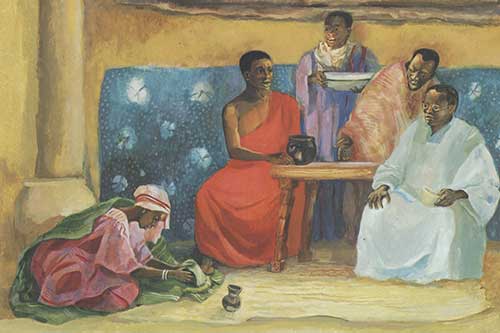
This is part of a series: The Lord’s Prayer in slow motion:
the first is Lord, Teach Us to Pray
the second is Our Father
the third is Our Father (part 2)
the fourth is Our Father (part 3)
the fifth is Hallowed be your Name
the sixth is Your Kingdom Come
the seventh is Your will be done.
the eighth is Give us today our daily bread.
Forgive us our sins.
Some people, as you will know, preach about sin a lot. That’s not, as I’m sure you realise, where I put my stress.
But let’s not pretend that sin isn’t a reality.
When, at the Eucharist, we confess our sins – that’s not something we are just repeating without meaning. We say (in NZ at least) “we sin in ignorance”. Yes you and I sin in ignorance. We say (in NZ at least) “we sin in weakness”. Yes, you and I sin in weakness. But the reality is that just as we say “we sin through our own deliberate fault”, you and I do sin through our own deliberate fault – through my own deliberate fault; through your own deliberate fault. On purpose.
This is not politically correct language is it? The spin put on this is language like “an error of judgment”. So often I read or hear about a wrong thing that someone has done and rather than saying it is wrong – it is “an error of judgment”.
Well sometimes, occasionally, some will make an error of judgment. But a lot of times people know what is right, and they decide to do what is wrong. Sin.
You know that what you are about to do is wrong. You know that if you say these words you will hurt this person. And you do it. You say it. You plot, you think about, how you can hurt someone.
Or you lie. Your words are not an error of judgment – there was no error involved at all. You just lie. You know what the truth is, and you open your mouth and out comes a lie. Or you gossip. Or slander…
The response of Jesus isn’t: “Oh I understand; everyone does it; we all make mistakes; you are only human.”
The response of Jesus is quite, quite different. This is sin.
The Christian response is to admit the sin – to confess the sin. I did wrong. I wilfully did wrong. I knew it was wrong. I knew what the right thing was to do – and I didn’t do it. I did the wrong thing. I sinned.
Here’s three difficult words to learn to say:
“I am sorry.”
Here’s three more difficult words to learn to say:
“Please forgive me.”
This is a totally different approach to fudging it, pretending it isn’t serious, pretending we have no control over our actions. We do have the free will to do what is right. And when we do what we know to be wrong – we do have a way to get back on track.
For some people getting back on track can involve private confession to a priest. And the priest then declares God’s forgiveness.
I am sorry. Please forgive me. How can I fix this. My intention is not to do this again.
I think this is the only healthy, honest way forward.
If you have told lies. Stop. Stop lying. One day when you need people to believe you, to trust you – who is going to stand by you and say that you are telling the truth? “But this time I am telling the truth.”
If you live in the world and culture of muddying the waters, in the fog of never taking responsibility for our own actions, of bad and evil just being passed off as an error of judgment, can you live a fully human life?
Jesus invites us, challenges us into a world which is honest and true, where you own your own actions good and bad, where you say sorry for the wrong you have done and make a fresh start each day committed to trying to live better.
Forgive us our sins.
If you appreciated this post, do remember to like the liturgy facebook page, use the RSS feed, and sign up for a not-very-often email, …




Both James and Hebrews also speak to sin.
NIV – If anyone, then, knows the good they ought to do and doesn’t do it, it is sin for them.
James 4:17
NIV – If we deliberately keep on sinning after we have received the knowledge of the truth, no sacrifice for sins is left,
Hebrews 10:26
James states what we might take into consideration regarding what is a sin. While Hebrews states that if we willfully sin after knowing the truth, that we are left to atone for those sins ourselves.
Both situations leave us in need to seek forgiveness for our sins.